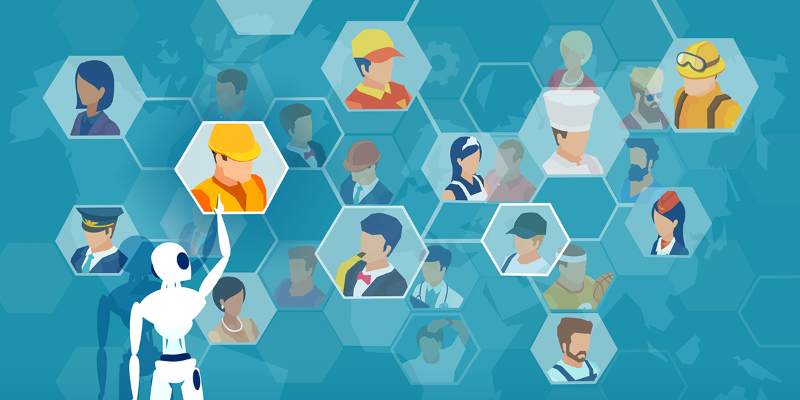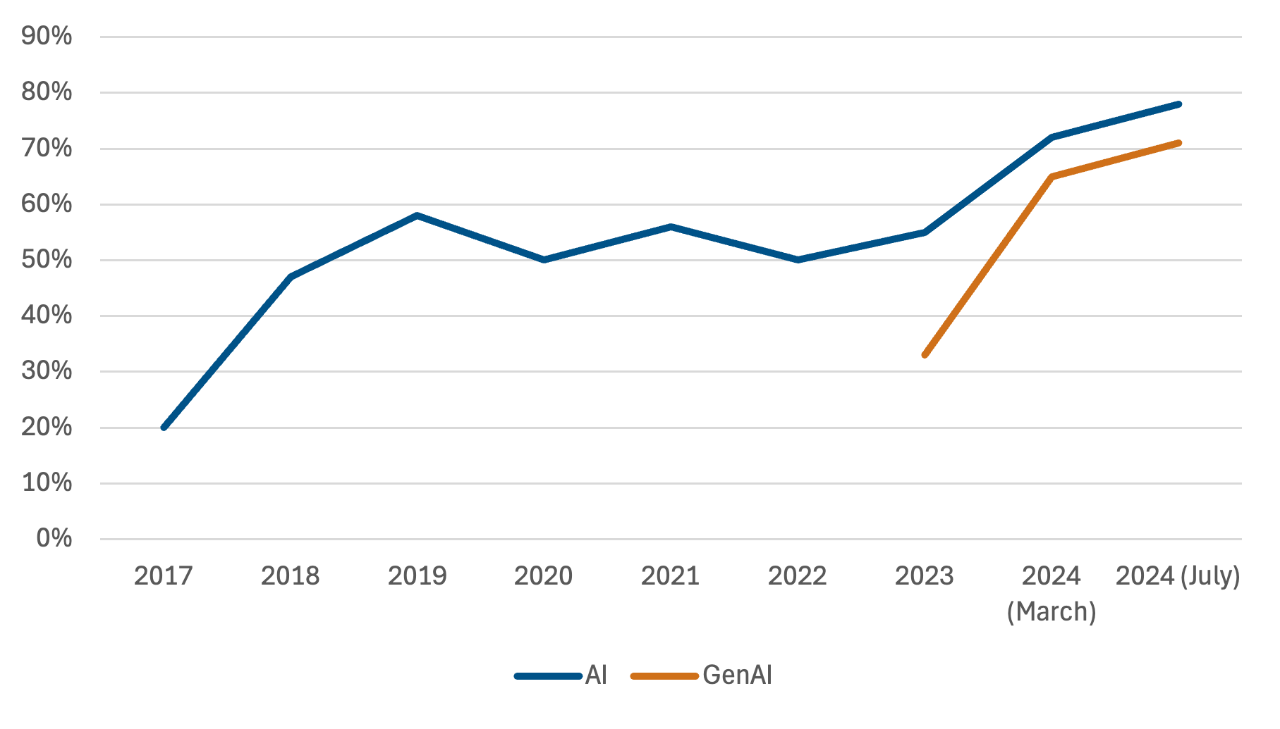AI Isn’t the First Innovation To Change the Labor Landscape

One of the most uncertain factors facing us in 2025 is artificial intelligence (AI). Some of the record-breaking stock prices we witnessed over the past couple of years were largely driven by AI investment. Evidently, many have high hopes that AI will boost productivity so much that it will more than compensate for the hundreds of billions of dollars being spent to fuel AI development. Others are not so excited. Many workers fear that the emerging technology will take away job opportunities. A tech expert may tell you that in the future machines will be doing everything for you. However, an economist will assure you that you will still have to go to work.
A survey by McKinsey & Company found that 31% of workers expect an overall reduction of headcounts in their organizations due to the adoption of AI. Since 2023, the use of AI has increased significantly. Generative AI, in particular, has more than doubled. Efforts to promote the technology are seen everywhere. It is very easy to be in awe of AI when you see the AI-generated images and videos online. It is indeed a useful tool that has mastered many tasks, but will it replace you?
Some professions will undoubtedly benefit from this technology while others may disappear. However, the labor market is no stranger to losing certain types of jobs. AI may be a new technology, but the challenges that it poses to the labor market are not new. We lost manufacturing jobs to globalization and coal mining jobs to the shift to clean energy. Today, we are losing computer programming jobs to AI. The dynamic of the economy has always been changing, and it’s only going to change faster now. We can attempt to stop the evolution or we can equip our labor force with the necessary tools and resources to adapt to the changes.
Some workers will be left behind when a shift emerges if we fail to reskill and upskill our staff. The answer is building a resilient workforce with a foundation of knowledge that allows workers to quickly adjust their expertise. And that starts with a revisit of our education system.
AI Adoption Rates Accelerate Since 2023

SOURCE: McKinsey Global Surveys on the State of AI.
